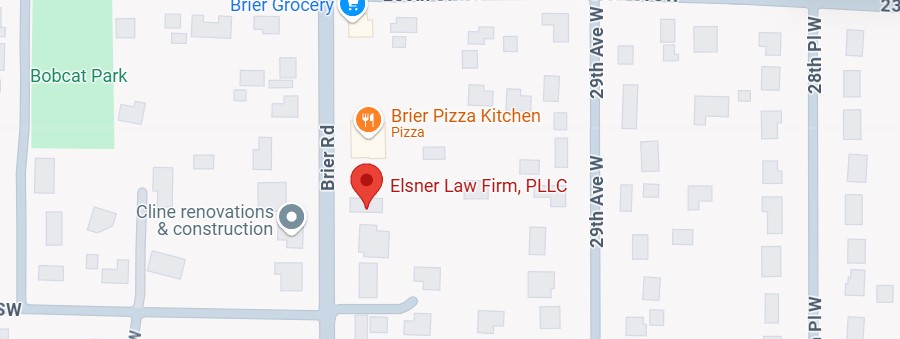Denied Insurance Benefits? Understanding Insurance Fair Conduct Act (IFCA) Basics
If you have an accident, you’ll want the peace of mind that your insurance company isn’t going to stiff you and not respond to your claim. The Insurance Fair Conduct Act (IFCA) is a statute that protects policy owners, also known as insureds, and bestows upon them certain rights with insurance companies they hold policies with. The statute outlines the legal standards and practices insurance companies must follow to avoid bad faith claims. The IFCA protects first party claimants, typically policyholders who file claims directly with their insurer. Under the statute, a party claimant is generally the policyholder or first party claimant who has been unreasonably denied coverage or benefits. Before we take a deeper dive into how this can help you as a consumer and policyholder, let’s go ahead and look at what makes the IFCA tick.
The IFCA essentially gives you the right to pursue a class action lawsuit if your insurance company acts in bad faith. “Bad faith” must be determined by the court for the lawsuit to be successful, but it would generally include things like not answering letters, not returning calls, unreasonably denying coverage and other general signs that your insurance company is treating you unfairly. While this does offer the insured some protection, insureds, as defined by the statute, have specific rights and remedies under the IFCA.
Who is Protected by the IFCA?
The Insurance Fair Conduct Act (IFCA) is a law enacted by the Washington legislature to protect policyholders from unfair practices by their insurers. However, the IFCA is limited in scope and does not apply to all types of insurance, such as health insurance, or to claims where the insured did not purchase the policy.
If your house floods and your flood insurance company dodges your calls for months, you would be eligible to pursue a class action lawsuit due to their act of bad faith under this law. The IFCA also works in conjunction with other insurance regulations to further protect policyholders.
Although this does offer the insured some protection against their insurance companies, it isn’t a total shield from unfairness from insurance companies, as bad faith or unreasonable coverage will have to be proven in court and partial denial or disagreement with claim value is always an option.
How Can IFCA Help?
The IFCA can help in several ways. First and foremost, it acts as a deterrent for insurance companies to act in bad faith, and creates an obligation to do more diligent business with their policyholders. Next, it offers a chance of compensation to soften the blow of whatever the cost is to fix, replace or pay caused by the set of circumstances surrounding the mishandled insurance claim. Lost wages, medical bills, car repairs – compensation for costs like these are generally what is yielded from successful IFCA bad faith lawsuits. Under the IFCA, policyholders may be awarded actual damages, and in some cases, triple damages if the insurer’s conduct is found to be particularly egregious. Damages awarded under the IFCA can exceed the actual damages suffered, as the law allows for treble damages in certain cases.
In addition to attorney and filing fees, recovery under the IFCA may include costs, attorney fees, and other damages as determined by the superior court. IFCA claims are typically filed in superior court, and litigation may be necessary if the insurer does not resolve the claim. The process to file an IFCA claim requires sending a pre-suit notice to the insurer, and only after this step can a lawsuit be filed if the dispute remains unresolved.
Taking Action Against Bad Faith
When you believe your insurance company has acted unfairly, it’s crucial to know that the Insurance Fair Conduct Act (IFCA) is on your side. The IFCA was designed to protect insurance policyholders from being unreasonably denied a claim for coverage or payment of benefits. If you feel your claim for coverage or payment has been unreasonably denied, or if you suspect your insurer is engaging in bad faith conduct, you may have grounds for an IFCA claim.
The first step is to carefully review your insurance policy and gather all documentation related to your claim. Pay close attention to any communications from your insurance company—emails, letters, and phone call records can all serve as important evidence if you decide to pursue action under the fair conduct act IFCA. Being “unreasonably denied” means that your insurer has failed to provide a valid reason for denying your claim, or has not conducted a reasonable investigation before making a decision about your coverage or payment of benefits.
If you suspect an IFCA violation, it’s important to act quickly. Document every interaction with your insurer and keep detailed records of your claim for coverage, including any evidence that supports your right to payment of benefits. The IFCA empowers insurance policyholders to challenge bad faith practices and seek remedies when their rights have been violated. By understanding your rights under the act and taking proactive steps, you can hold your insurance company accountable and ensure you receive the benefits and coverage you’re entitled to under your insurance policy.
Conclusion
The IFCA helps to balance the legal playing field between insurance companies and their policyholders, and it acts as a lifeline for those who get unfairly shortchanged or outright denied on a claim. Have additional questions? Give us a call today to learn more about how we can help with your denied insurance claim.






